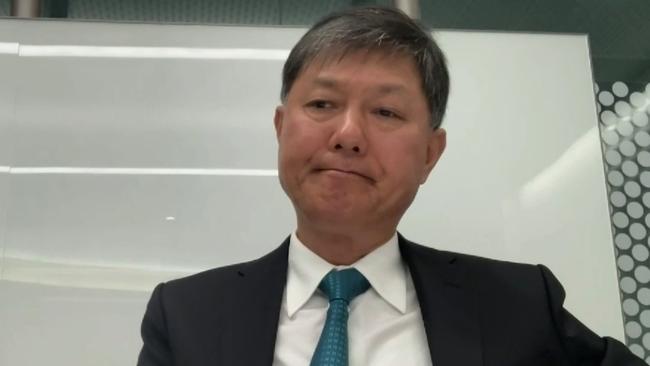Star checks billionaire into Sydney hotel, despite him never staying there, amid ‘dodgy’ cash deals
Star checked Chinese-born billionaire Phillip Dong Fang Lee into its Sydney hotel for almost a month in 2015. He says he never stayed at the place.

Star Entertainment listed a billionaire VIP gambler as staying at its hotel for almost a month in a receipt detailing millions of dollars in China Union Pay transactions, despite him never spending one night at the Sydney gaming complex.
Sydney-based property developer Phillip Dong Fang Lee told a royal commission-style inquiry into Star that the company allowed him to use his China Union Card for gambling, a practice that may have breached money laundering laws.
It comes after the inquiry heard that Star processed almost $1bn worth of suspicious transactions on the CUP cards, disguising the payments as hotel accommodation — often in circumstances where the spending was suspiciously high to properly account for hotel spending — in some cases exceeding millions of dollars.
Gambling is illegal in China and CUP cards cannot be used for that purpose.
But Mr Lee told the inquiry that he was “very happy” that a Star relationship manager who assisted high rollers said he could use the card for gambling.
During one evening, within minutes, Star processed $11m in transactions on Mr Lee’s card, listing him as staying at its hotel — complete with a room number — on its receipt for a 27-day period in April 2015.
But, looking at a Mandarin translation of that receipt, Mr Lee — who gambled at The Star’s Sydney casino for 20 years, playing mainly baccarat — said, via a translator, who once worked with Chinese president Xi Jinping, that he never stayed at the hotel.
“I was staying at home. It was possible that the casino gave me some accommodation vouchers, but I did not stay, and I gave those vouchers to my friends,” said Mr Lee, who lives in the eastern harbourside suburb, Bellevue Hill.
“It is possible that my friends might have stayed in this business suite but not myself.”
He said that he received meals and other forms of enhanced treatment from casino officials who enabled his gambling and allowed it to be funded by his money secured in Chinese banks.
“Of course I was very happy. In China, I have friends who know them well and I could borrow RMB and in Australia it‘s very hard to get and borrow money.”
To which counsel assisting the inquiry Naomi Sharp asked Mr Lee: “So was there a reason you were happy was you could use China Union Pay card was that you could move money out of your bank accounts in China?”
“No, that was not the case,” Mr Lee said.
“The reason I was happy was that I could win money, win money from the casino because I’m enjoying gambling and also, if I lost at the time, I could repay debts, that was why I was happy.
“Because for many years, I have lost so much money, and I wanted to have the opportunity to win back, to be able to use China Union cards gave me the opportunity to have access to RMB and I can have the opportunity to win back.”
This was despite the China Union Pay debit card supposed to be issued only to nonresidents and intended to be used on hotel accommodation services.
Star’s group manager of compliance Graeme Stevens said he knew gambling transactions were being processed on the Star’s hotel terminals rather than at its casino.
“My understanding as explained to me was two-fold. One was to distance it from the normal transactions at the cage cashiers,” said Mr Stevens, who began working at The Star as an assistant pit manager in 1995.
“Also because those cards were also being used to pay for hotel rooms, and we had a limited number of merchant enabled devices to use … it was determined that we would use those at the hotel.”
Mr Stevens initially said he became aware of China Union Pay’s gambling ban when the inquiry began. But after Mr Sharp directed him to several emails about the debit card, he conceded that he was aware of the prohibition.
“Did you know In June 2013 that UnionPay international prohibited the use of China Union Pay cards to purchase gambling chips?” Ms Sharp asked.
“Yes,” Mr Stevens replied.
His evidence followed the inquiring hearing on Monday that some officials from NAB – Star’s banker — communicated with the company as far back as 2013 on whether funds from the cards could be transferred to player gambling accounts.
The transactions raised eyebrows at China’s central bank, which said it had observed individual card holders spending more than $20m at Star and was “struggling to see how this level of expenditure could be made on non-gambling entertainment”.
The inquiry continues on Friday.



